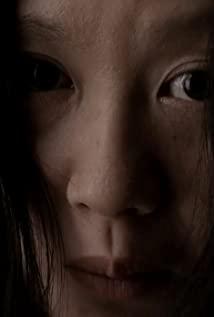I watched this movie twice. The reason is very simple, the first time I found it ugly, so I wanted to know where it looked good. The movie is split into two parts, which seem unconnected. The first part ended on a beach at night, and the heroine was kidnapped by an inexplicable man... A violin sounded, ushering in the second part. It was deep darkness, but the heroine was in the cinema, and the lights came on immediately... After facing her former friend, the heroine returned to the beach again. After being awakened twice, the second part ends again with a burst of violins. Only the back of the heroine was left on the screen. So, are the two parts of the movie related? Narratively, it can be seen as two separate parts. Because it is difficult to piece together a complete story from a linear narrative. And I personally don't think it's the original intent of the movie. "A woman who has something on her mind wanders around, shuttles through the conversations of acquaintances, and occasionally meets new faces" Fragmented expression and casual connection. But not without a trace. Narrative turning points are always hints, "I'm going to smoke a cigarette" or "blank shots after the characters disappear." In my opinion, these cold hints or tactics are actually a kind of mediation to "the heroine's intense inner activities". The heroine's sudden "leaving" makes us feel "what is she escaping from, what is she hiding", which mystifies her image. And this "escape" can be embodied as the mysterious man to some extent. In the first part, the heroine wanted to escape "him" but was taken away by "he" instead. In the second part, the heroine directly ignores "him". This is confusing to us viewers, does "he" exist? What metaphors are there? "He" represents the public who slandered her, or the director she longed for? Or something else? Personally, I don't think it's necessary to identify a referent through a blunt symbolic metaphor in this way. That just turns the movie into a boring puzzle game. From the point of view of the narrative style of the film, the director should also hate this kind of "analytical complete"-style viewing, and cannot think about the film idea itself independently. Here we can refer to this man as merely an "absolute other," an aggressive other. Because "he" is absolutely unfamiliar to both the people in the play and the audience, and even an eyesore. "He" can even be reduced to a "stain", a "thing", an "object". This imaginary "other" is aggressive and frightening in the first part. In the second part, it is just an "object", a meaningless "thing", but a "stain" that appears on the screen. How do you view this change? I Personally, I think this contains a positive change. In the first part, the heroine is in a heterogeneous environment, but it is calm and stable, but there is a kind of depression implied in this steady calm. This repression manifests itself by escaping from the "other" and materializes a man in black (silence, departure). But this escape presents a powerless ending (captivity). In the second part, the heroine gradually presents an unstable state. The catharsis in the two dinner parties, the aggression towards others, the doubts about "love", and the emptiness of life. But why is this hysterical state not regarded as a rebellious gesture of the heroine? The first awakening on the beach, that dream-like "meeting", the heroine confronted the "other" she had been avoiding. And wake up again at the right time. This time, she is liberated from this "sad" state, this time, the "other" is just a voice, and the image of "him" is lost. She got up, patted the sand on her body, and left alone. The "other" was no longer visible on the screen, only an ordinary back. Here, I presume that the two wakeups are consecutive, which I think is no problem. "Departure in the dream" reflects the continuation of reality, while "departure in reality" implies the end of the "dream". I want to explain here the full meaning of what I saw with this film. Everyone faces sad moments. But a sadness may only be temporarily disturbed by the "other", and this "other" is also fabricated by oneself. In Lacan's words, it may be just a "symptom" of speech. As human beings, we inevitably face the torment of ourselves in the hell of the other. But we should trust our ability to face our "truth of desire". The heroine lies on the beach, perhaps expecting her to be washed away by the tide, along with the "other" (a portrait of the beach) she made up, into eternity. But in the end, she found that she just needed a moment to wake up. Wake up and leave. A grief is just an illusion of a grand narrative, a violin lullaby of a dream. But why is this hysterical state not regarded as a rebellious gesture of the heroine? The first awakening on the beach, that dream-like "meeting", the heroine confronted the "other" she had been avoiding. And wake up again at the right time. This time, she is liberated from this "sad" state, this time, the "other" is just a voice, and the image of "him" is lost. She got up, patted the sand on her body, and left alone. The "other" was no longer visible on the screen, only an ordinary back. Here, I presume that the two wakeups are consecutive, which I think is no problem. "Departure in the dream" reflects the continuation of reality, while "departure in reality" implies the end of the "dream". I want to explain here the full meaning of what I saw with this film. Everyone faces sad moments. But a sadness may only be temporarily disturbed by the "other", and this "other" is also fabricated by oneself. In Lacan's words, it may be just a "symptom" of speech. As human beings, we inevitably face the torment of ourselves in the hell of the other. But we should trust our ability to face our "truth of desire". The heroine lies on the beach, perhaps expecting her to be washed away by the tide, along with the "other" (a portrait of the beach) she made up, into eternity. But in the end, she found that she just needed a moment to wake up. Wake up and leave. A grief is just an illusion of a grand narrative, a violin lullaby of a dream. But why is this hysterical state not regarded as a rebellious gesture of the heroine? The first awakening on the beach, that dream-like "meeting", the heroine confronted the "other" she had been avoiding. And wake up again at the right time. This time, she is liberated from this "sad" state, this time, the "other" is just a voice, and the image of "him" is lost. She got up, patted the sand on her body, and left alone. The "other" was no longer visible on the screen, only an ordinary back. Here, I presume that the two wakeups are consecutive, which I think is no problem. "Departure in the dream" reflects the continuation of reality, while "departure in reality" implies the end of the "dream". I want to explain here the full meaning of what I saw with this film. Everyone faces sad moments. But a sadness may only be temporarily disturbed by the "other", and this "other" is also fabricated by oneself. In Lacan's words, it may be just a "symptom" of speech. As human beings, we inevitably face the torment of ourselves in the hell of the other. But we should trust our ability to face our "truth of desire". The heroine lies on the beach, perhaps expecting her to be washed away by the tide, along with the "other" (a portrait of the beach) she made up, into eternity. But in the end, she found that she just needed a moment to wake up. Wake up and leave. A grief is just an illusion of a grand narrative, a violin lullaby of a dream. You have the ability to face your own "truth of desire". The heroine lies on the beach, perhaps expecting her to be washed away by the tide, along with the "other" (a portrait of the beach) she made up, into eternity. But in the end, she found that she just needed a moment to wake up. Wake up and leave. A grief is just an illusion of a grand narrative, a violin lullaby of a dream. You have the ability to face your own "truth of desire". The heroine lies on the beach, perhaps expecting her to be washed away by the tide, along with the "other" (a portrait of the beach) she made up, into eternity. But in the end, she found that she just needed a moment to wake up. Wake up and leave. A grief is just an illusion of a grand narrative, a violin lullaby of a dream.
View more about On the Beach at Night Alone reviews











